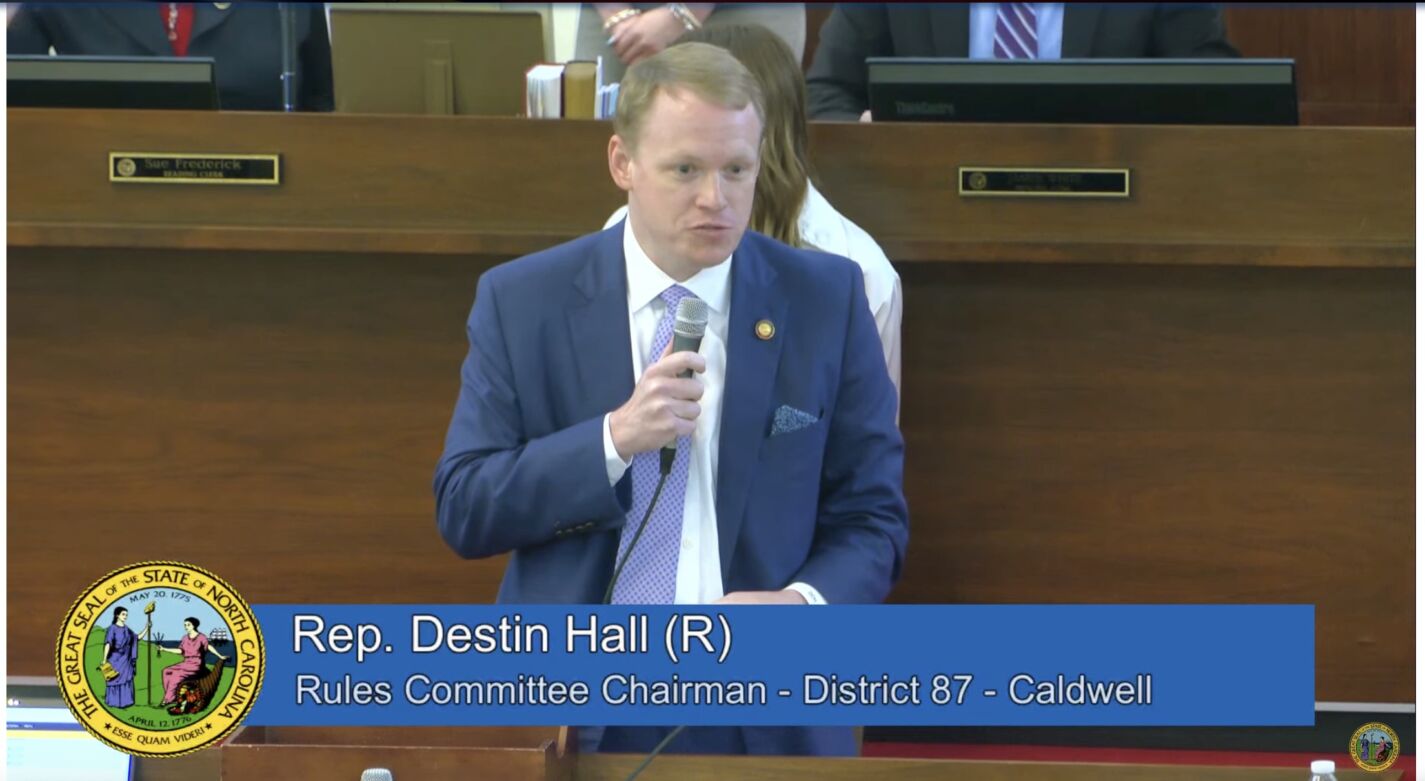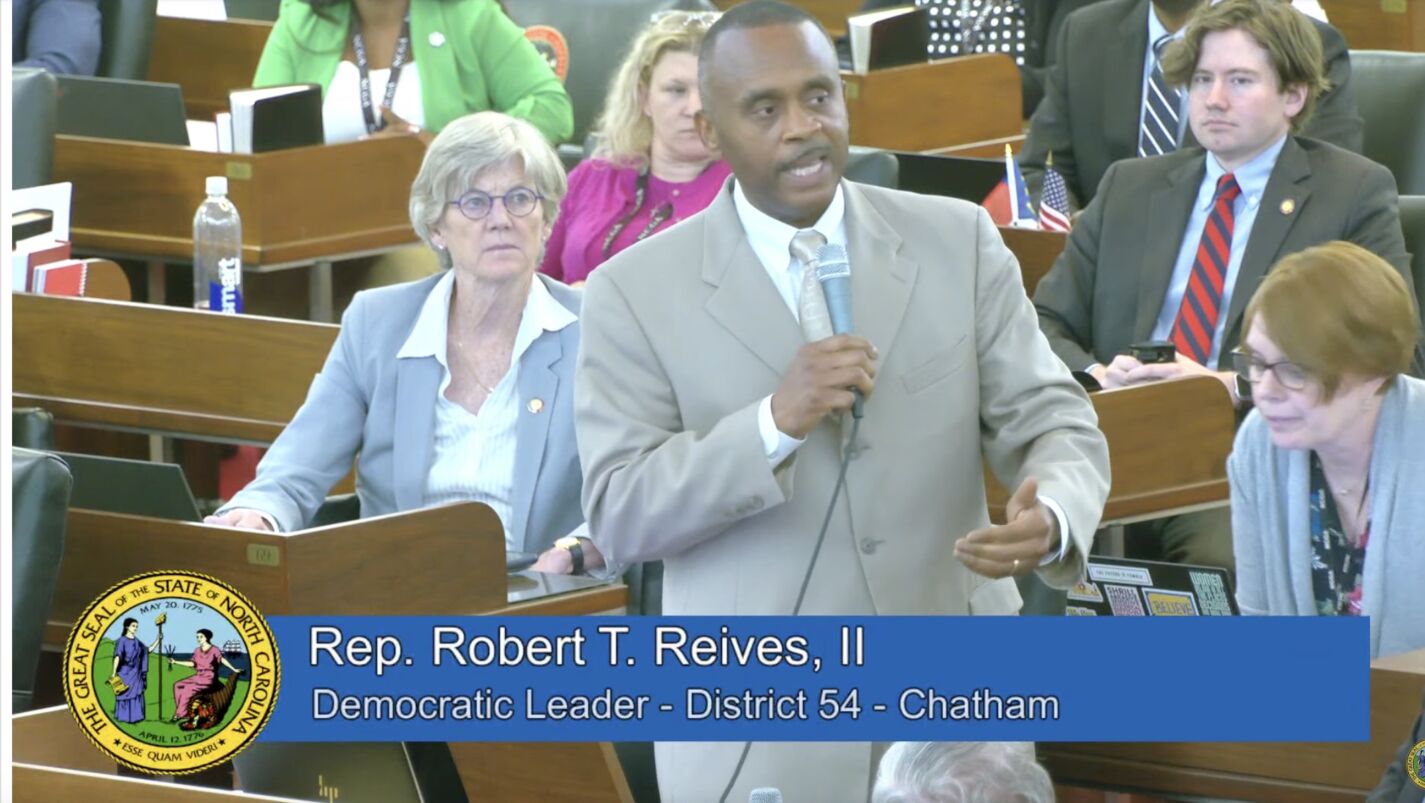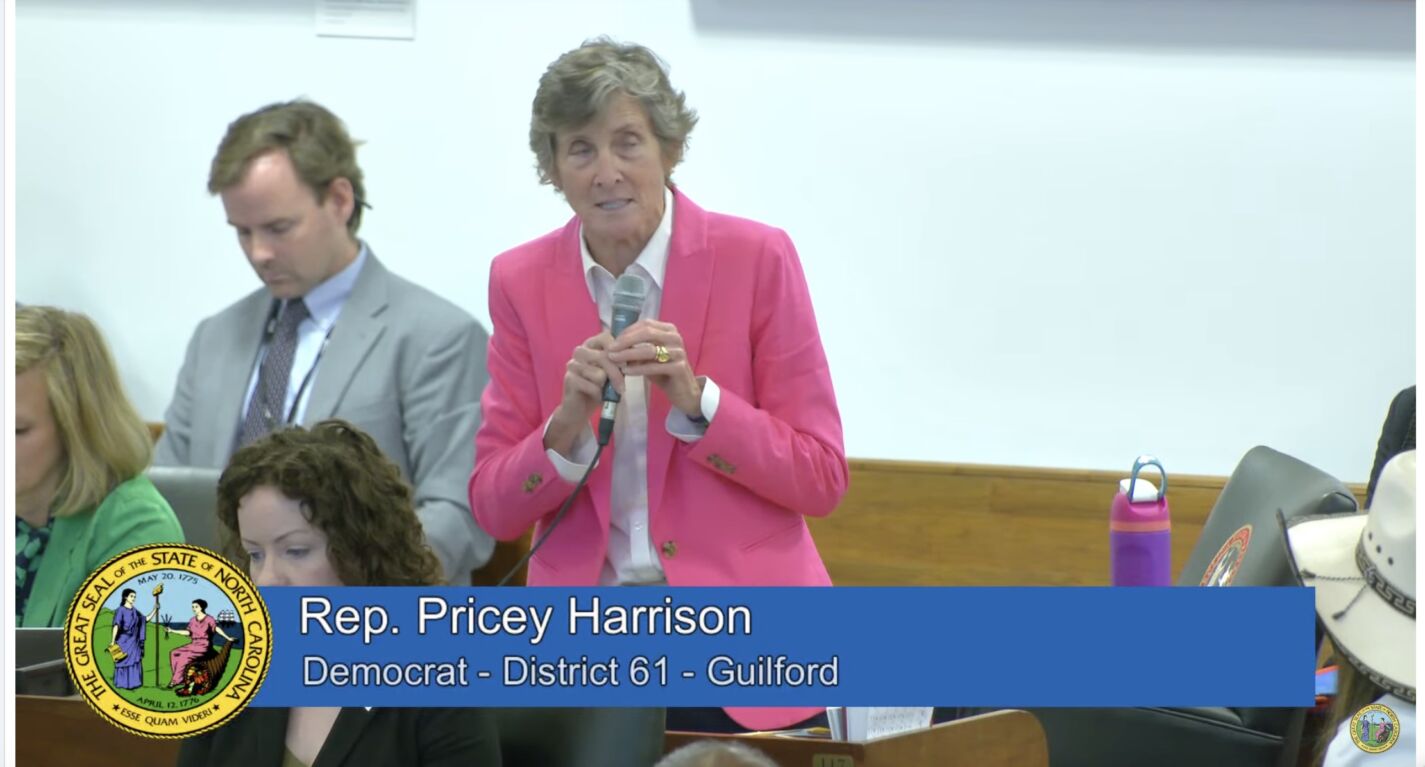On Tuesday, the Republican-led North Carolina House set a record, overriding six of Democrat Gov. Roy Cooper’s vetoes, the most ever in one day. In some cases, Democrat lawmakers joined the majority and voted to override as well. In all cases, the Senate has overridden the vetoes too, making the bills now law.
In 1996, North Carolina became the last state in the nation to allow a gubernatorial veto after voters approved a constitutional amendment on a statewide 1995 referendum. Cooper has exercised his veto power 81 times since taking office in 2017, more than twice as much as all previous North Carolina governors combined. So far this session, the first since Republicans won back a super majority, the legislature has overridden all eight of Cooper’s vetoes.
Nondiscrimination & Dignity in State Work
Cooper’s veto of S.B. 364, Nondiscrimination & Dignity in State Work, was overridden in the House by a vote of 72-47, with no Democrats voting to override. The Senate overrode Cooper’s veto on June 20, so the bill now becomes law.
Rep. Destin Hall, R-Caldwell, said the bill was about making sure that there is no discrimination based on politics in hiring state government employees.

“It prohibits state government from compelling a job applicant to say anything,” he said. “That’s what the First Amendment is all about. Making sure that government doesn’t prohibit speech, but they also don’t compel citizens to say things no matter what their beliefs are.”
He read part of a UNC school system application from a year ago that said, “This university is committed to building a just and inclusive community, one that does not tolerate unjust and inhumane treatment and that denounces it clearly and loudly. Please describe what those words mean to you and how you will contribute to a more diverse and inclusive entity state environment.”
The question has since been removed from other applications.
Hall said at first glance, the words may seem okay, but the problem is what is unjust is in the eye of the beholder. He said they have heard from those applying, including students, that they felt they had to answer a certain way depending on who would be reading their applications.
“This doesn’t prohibit state government from looking at the resume, from looking at social media posts, from looking online or hearing things that an individual says if somebody is saying crazy things they’re posting on Facebook or they’ve been recorded doing something they shouldn’t be doing,” he said. “All of those things can still be considered in the job application. This bill is simply about not compelling the citizens of this state or anybody applying for a job with this state from saying things that may be contrary to their political beliefs to get a job.”
Democrats disagreed and looked at the bill in another way.
“This is overreaching like never before at a state level, saying that we can’t have these conversations,” said Rep. Robert Reives, D-Chatham. “You’ve got a right to be the person that you want to be. The people who are talking about paying you money have a right to say I’m not sure that you’re the best fit.”

He also mentioned that while hiring managers have a right to ask questions about social media posts and the applicants’ actions, the applicants should still have the right to explain their position, including how they wish they could say differently.
“We can’t control everything that everybody feels, thinks, wants, desires, but I don’t think that we should be telling state schools and state agencies that you’ve got to work with people who you already know walking in the door you’re not going to get along with, you’re not going to be able to fit in with for whatever reason,” he said.
Rep. Abe Jones, D-Guilford, called it a “shameful bill” that was not needed.
“The language that we’re all relying on to debate the merits of this bill is the phrase “matters of contemporary political debate or social action,” said Rep. Pricey Harrison, D-Guilford, who said it will have a chilling effect on questions than an employer can ask.
She gave an example of someone from DEQ not being able to ask if you believe in climate change or whether a public health person believes in childhood vaccines.
“All of those fall into this category of contemporary political debate or social action, and that language is unconstitutionally vague, and we are going to be paying more money for lawyers to litigate to defend this unconstitutional bill,” Harrison said.
The North Carolina Farm Act of 2023
Cooper’s veto of S.B. 582, The North Carolina Farm Act of 2023, was overridden by House lawmakers by a vote of 78-40 with six Democrats joining the vote to override. The Senate also overrode Cooper’s veto of the bill earlier this week.
“The provision in this bill that severely weakens protection for wetlands means more severe flooding for homes, roads and businesses and dirtier water for our people, particularly in eastern North Carolina,” said Cooper in a statement after the veto. “This provision coupled with the drastic weakening of federal rules caused by the U.S. Supreme Court’s recent decision in the Sackett case, leaves approximately 2.5 million acres, or about one half of our state’s wetlands, unprotected.”
Harrison called it the most destructive environmental bill this chamber has voted on since she was elected in 2004, stating that agriculture is exempt from wetlands regulations and there is a provision in the bill that will allow the development of wetlands, which plays a role in protecting water quality and preventing flooding.
She also said that the Supreme Court ruled that it is now up to the states to regulate wetlands.
“If passed and the veto is overridden, we’re going to lose two and a half million acres of wetlands to vulnerability for development because they will no longer have the protection that they had before, and that’s 7% of the land mass of the state,” Harrison said. “A significant portion of that, 800,000 acres, are actually in the Cape Fear River Basin.”
Address ESG Factors
H.B. 750, Address ESG Factors passed into law with a vote of 72-46 with no Democrats supporting the override.. The Senate also overrode veto on the bill later Tuesday afternoon by a vote of 29 to 16.
Rep. Wesley Harris, D- Mecklenburg, argued against overriding the veto.
“For example, if you know you want to buy American, but there’s a Chinese company that has actually better financials than the American company, you may not be allowed to invest in the American company for the sole purpose that it’s an American company when they’re better pecuniary factors for these other companies, and so it’s vague,” he said. “I think it opens it up to a lot of potential lawsuits that can endanger the treasurer’s office.”
Reimburse Late Audit Costs with Sales Tax Revenue
S.B. 299, Reimburse Late Audit Costs with Sales Tax Revenue, became law with a vote of 75-44, with three Democrats voting to override. The Senate had already voted to override on June 20 with support from one Democrat.
Republican State Treasurer Dale Folwell and Democrat State Auditor Beth Wood released a statement about the passage of the bill, which involves increasing compliance by counties and municipalities that fail to timely submit an annual audit report.
“We hope this law is never used, but unfortunately, there are some cases in which it may need to be implemented. Ensuring local governments’ bank books are balanced and taxpayer money is properly accounted for has always been important. With millions of federal dollars flowing through our local governments, that obligation is more important than ever.”
Other bills that became law include S.B. 329, Retail Installment Sales Act Amendments, and S.B. 331, Consumer Finance Act Amendments, both with votes of 76-43 with Democrats Reps. Cecil Brockman, D-Guilford; Garland Pierce, D-Hoke; Shelly Willingham, R-Edgecombe; and Michael Wray, D-Halifax, supporting each override.
